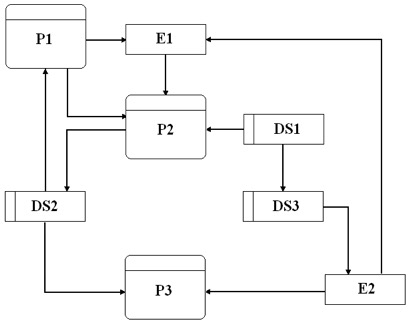Question
Problem I - (50 points) Steve Smith is a restaurant owner who wants to spend his $10,000 to modernize his restaurant by adapting it more
Problem I - (50 points)
Steve Smith is a restaurant owner who wants to spend his $10,000 to modernize his restaurant by adapting it more closely to the preferences of his repeat customers. Keeping track of his customers' likes and dislikes. Information such as where they like to sit, what they like to eat, when they normally arrive at the restaurant are all items of interest to him, since he believes that in this way he can better serve his customers. Steve has asked you to develop a system for him that will help make his customers happy while increasing his business.
You have heard what Steve had to say about his customers. There are certainly more preferences that he can keep track of.
Develop a problem definition for Steve, as discussed in the Session Five lecture notes and readings.
Be sure to include several possibilities: (10pts. per section)
Problem Definition
Issues
Objectives
Requirements
Constraints
Problem II- (50 points)
Please label each question as either closed question or open-ended question. (10pts.)
- How many personal computers do you have in this department?
- How is this task performed?
- Why do you perform the task that way?
- How many hours of training does a clerk receive?
- How many customers ordered products from the Web site last month?
- What are users saying about the new system?
- How are the checks reconciled?
- What added features would you like to have in the new billing system?
- Is the calculation procedure described in the manual?
- Is there anything else you can tell me about this topic?
You are going to interview the local manager of LDI, a national tire retailer, who has asked you to work as a system analyst on a management information system to provide inventory information.
Here are five questions you wrote to prepare for the meeting:
- What are the five physical strengths and five limitations of the end users with respect to performing the national retail inventory processing on a daily basis?
- What are the top ten high-level needs to make the new inventory system user-friendly, accurate, reliable, and secure?
- Do you have year-to-date demand and supply metrics that were gathered in the last three months?
- How often do you update your tire inventories?
- How many retail stores do you currently have that carry your tire inventory?
Order your questions in:
(1) pyramid structure (10pts.)
(2) funnel structure (10pts.)
(3) diamond-shaped structure (10pts.)
You are a project manager at L & D Inc., specialized in information technology and network engineering. One of your junior systems analyst came to you for an advice of a technology to capture user information requirements. He described to you that he had talked with his client several times in the past week to define user information requirements. Each time he thought he had captured user information requirements, they've already changed. Finally, he thinks his clients do not even know what they want for their system.
Give your junior systems analyst an advice of several types of technology that he could use to capture user information requirements and explain to him how this technology can help him to better define users' information requirements. (10pts.)
Problem III- (50 points)
- What are six fact finding techniques and what are the advantages and disadvantages of each?
- What are the types of facts a systems analyst is required to collect?
- What is a fact-find strategy that will make the most of your time with end-users?
- How do you develop an interview agenda and a questionnaire?
- What is the role of ethics in the process of fact finding?
Problem IV - (50 points)
Perfect Pizza wants to install a system to record orders for pizza and chicken wings. When regular customers call Perfect Pizza on the phone, they are asked their phone number. When the number is typed into a computer, the name, address, and last order date is automatically brought up on the screen. Once the order is taken, the total, including tax and delivery, is calculated. Then the order is given to the cook. A receipt is printed. Occasionally, special offers (coupons) are printed so the customer can get a discount. Drivers who make deliveries give customers a copy of the receipt and a coupon (if any). Weekly totals are kept for comparison with last year's performance. A summary of business activities for taking an order at Perfect Pizza is as follows:
1. Draw a context-level data flow diagram for Perfect Pizza using the following items:
2. Explode the above context-level diagram by drawing the logical data flow diagram 0 showing all the major processes using the following items:
Process names:
(1) Find and display customer record
(2) Take customer order
(3) Send order to cook
(4) Print customer receipt
(5) Deliver customer order
(6) Print weekly totals
Data stores:
(1) Customer master
(2) Product file
(3) Coupons
(4) Sale history
Entities:
(1) Customer
(2) Management
(3) Cook
Problem V: (50 points)
In the following proposed DFD design, there are some typical errors among external entities (E), processes (P) and data stores (DS).

Step by Step Solution
There are 3 Steps involved in it
Step: 1

Get Instant Access to Expert-Tailored Solutions
See step-by-step solutions with expert insights and AI powered tools for academic success
Step: 2

Step: 3

Ace Your Homework with AI
Get the answers you need in no time with our AI-driven, step-by-step assistance
Get Started


